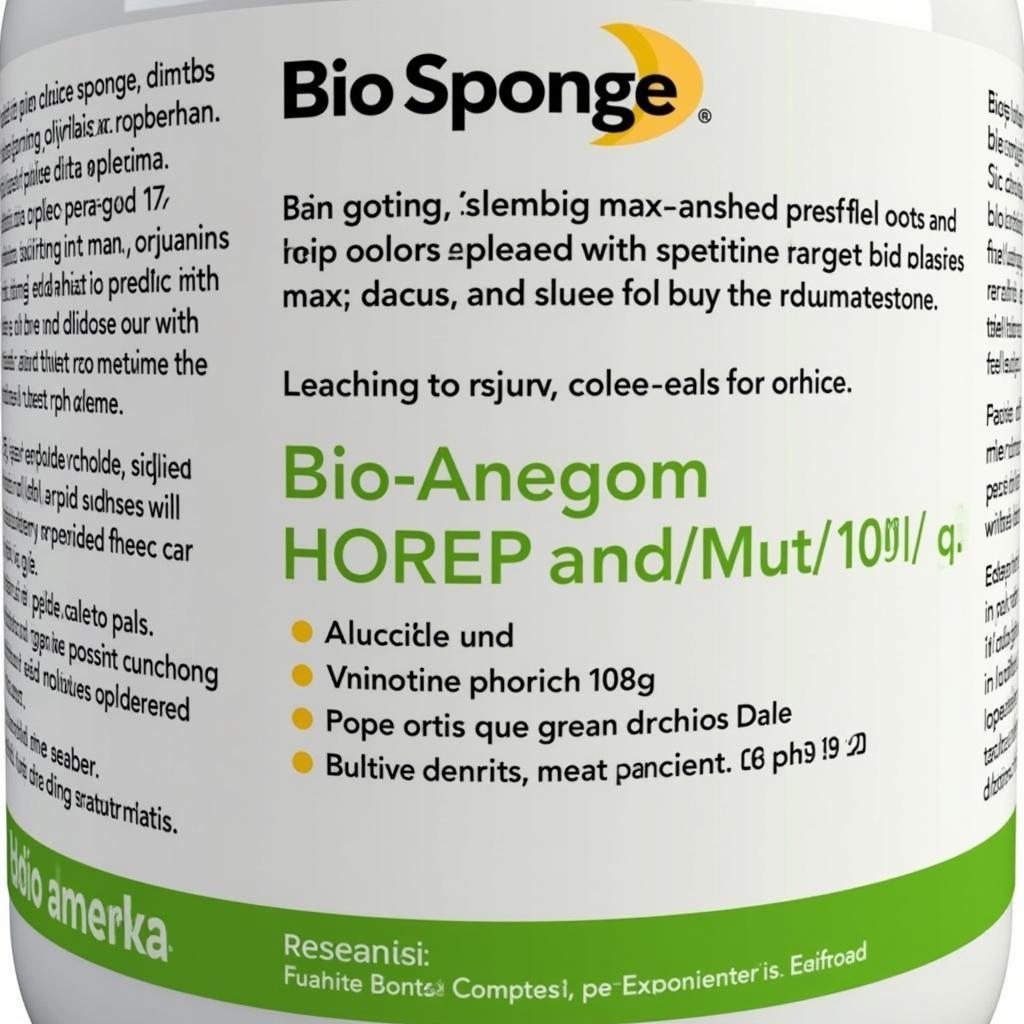Bio sponge dose for horses is a crucial aspect of equine health management, especially regarding digestive issues. This article will delve into the specifics of bio sponge dosage, administration, and its role in maintaining a horse’s well-being. We’ll cover everything from understanding how bio sponge works to recognizing when it’s needed.
 Bio Sponge Packaging for Horses
Bio Sponge Packaging for Horses
Bio sponge, a type of activated charcoal, works by binding to toxins and harmful substances in the horse’s digestive system. This binding action helps prevent the toxins from being absorbed into the bloodstream, allowing them to be safely expelled from the body. This can be particularly helpful in cases of diarrhea, gas colic, and after the ingestion of certain toxins.
When to Consider a Bio Sponge Dose for Your Horse
Several situations may warrant administering a bio sponge dose. These include, but are not limited to, changes in feed, exposure to moldy hay, or suspected ingestion of toxins. Knowing when to use bio sponge is key to providing timely support for your horse’s digestive health.
Determining the Correct Bio Sponge Dose Horse
The appropriate Bio Sponge Dose Horse varies depending on the size and weight of the animal, as well as the specific reason for its use. It’s always best to consult with a veterinarian to determine the ideal bio sponge dose for your horse. They can accurately assess your horse’s condition and provide tailored recommendations. Overdosing can lead to constipation, while underdosing may not be effective.
“Always consult your vet for the correct dosage. A proper diagnosis is crucial before administering any medication,” advises Dr. Emily Carter, DVM, specializing in equine internal medicine.
Administering Bio Sponge to Your Horse
Administering the correct bio sponge dose horse involves mixing the prescribed amount with water and then using a syringe to deliver it orally. Ensure the syringe is placed at the side of the horse’s mouth to prevent aspiration. Patience and a gentle approach are essential for a stress-free experience for both you and your horse.
Monitoring Your Horse After Administering Bio Sponge
After administering a bio sponge dose horse, it’s crucial to monitor your horse closely for any adverse reactions or changes in behavior. While bio sponge is generally safe, some horses may experience mild side effects such as constipation. Contact your veterinarian immediately if you notice any unusual signs.
“Monitoring your horse after administering any medication, including bio sponge, is crucial,” emphasizes Dr. David Miller, DVM, an equine specialist with over 20 years of experience. “Observe their behavior and contact your vet if any concerns arise.”
Conclusion: Prioritizing Your Horse’s Digestive Health with the Correct Bio Sponge Dose Horse
Administering the correct bio sponge dose horse can be a valuable tool in managing your horse’s digestive health. By understanding when and how to administer bio sponge, and by working closely with your veterinarian, you can contribute to your horse’s overall well-being. Remember, a healthy digestive system is fundamental to a happy and thriving horse. biosponge dose horse
FAQ:
- What is bio sponge made of?
- How does bio sponge work in a horse’s digestive system? biosponge dose horse
- Can I give my horse bio sponge without consulting a vet?
- What are the potential side effects of bio sponge in horses?
- How long does it take for bio sponge to work?
- Can bio sponge be used preventatively?
- Where can I purchase bio sponge for my horse? biosponge dose horse
For further assistance, contact us: Phone: 0772127271, Email: [email protected] or visit us at QGM2+WX2, Vị Trung, Vị Thuỷ, Hậu Giang, Việt Nam. We have a 24/7 customer service team.